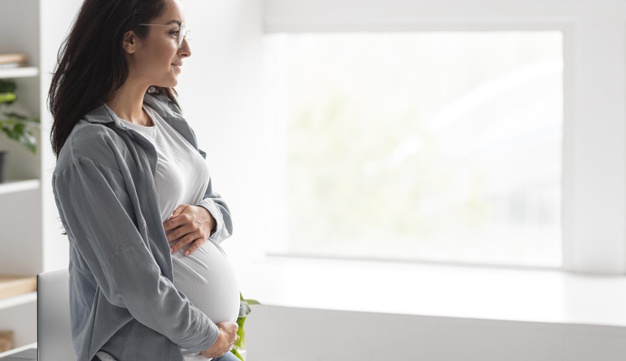Anyone who has had a professional massage understands that it makes both the body and the mind feel better — and prenatal massage is no exception, especially when extra weight and changes in posture cause new aches and pain.
Here’s everything you need to know about whether or not getting a massage while pregnant is safe.
Prenatal massages are generally considered safe after the first trimester, as long as you have your doctor’s consent and advise your practitioner that you’re expecting. However, massage must be prevented during the first three months of pregnancy because it can make you dizzy and worse morning sickness.
Massage therapy has been demonstrated to provide numerous benefits during pregnancy and a sense of well-being, greater relaxation, and improved sleep. However, because some techniques and trigger spots in the body might provoke contractions and early labor, it’s critical to seek professional help.
Who should stay away from massages while pregnant?
Discuss your risk with your doctor. Massage should not be used during pregnancy in some circumstances.
As a result, if you have the following conditions, your doctor may advise against receiving a massage:
- possibility of preterm labor
- preeclampsia
- high blood pressure
- blood clots/clotting disorder
- problems with your placenta, like placenta previa
- gestational diabetes
Massage should be avoided during pregnancy in the following areas:
First and foremost: Certain acupressure spots may cause a miscarriage or preterm labor if they are massaged. These points are sometimes massaged to induce labor, and while they may reduce the length and agony of labor, you should avoid them before then.
Additionally, for your child’s comfort and safety in the womb, your pregnant body must be placed and maintained differently from a non-pregnant person’s. For example, you should lie on your side, not your back or stomach, sit erect or even in a semi-reclining position during the massage.
What is the reason for this? To begin with, sleeping on your stomach is inconvenient. Furthermore, resting on your back after 20 weeks may put pressure on major arteries, such as your aorta and inferior vena cava, causing blood flow to be restricted. As a result, your blood pressure may drop, and blood circulation to your uterus may be reduced.
You also might want to exercise caution in the following areas of your body:
Your stomach. Massages on your growing belly and the area around it should generally be avoided since they could hurt you or the baby. It’s OK, though, to gently massage some stretching mark cream onto your stomach.
Your legs, to be precise. It’s alright to rub or brush your legs softly, but be sure your partner isn’t applying excessive deep tissue pressure. As your blood volume rises during pregnancy, blood flow in your legs may slow, making you more susceptible to clots. So, a clot could be expelled by a deep tissue massage on your legs.
Points of pressure, as we mentioned before, pressure points in some regions of your body, such as your wrist, ankle, or between your fingers, are thought to generate contractions in reflexology. These locations should be ignored until you’re nearing the end of your pregnancy and your doctor says it’s safe.
Professional training matters
If you follow the measures we’ve listed here, there’s really nothing wrong with getting a gentle massage from your partner or a friend. However, if you decide to receive a massage, make sure it’s from someone skilled in prenatal massage and you have had a word with your doctor.
During pregnancy and birth, your body has to go through many changes. Therefore, it’s critical to choose a massage therapist who understands everything that’s going on with your body so that the massage may be adjusted to your specific needs.
Massage during pregnancy has several advantages.
Massage has been shown to lower stress hormones in the body and relax and loosen muscles. It can help improve blood flow, which is crucial during pregnancy, and keep your lymph system running smoothly. It also re-connects your mind with your body, which is reassuring if you ever question if you have a kid or if an extra-terrestrial has taken up residence inside of you.
Routine prenatal massages will not only calm you down during your pregnancy, but they may also relieve:
- Insomnia
- Joint pain
- Neck and back pain
- Leg cramping
- Sciatica
- Swelling in your hands and feet
- Carpal tunnel pain
- Headaches and sinus congestion
![]()











